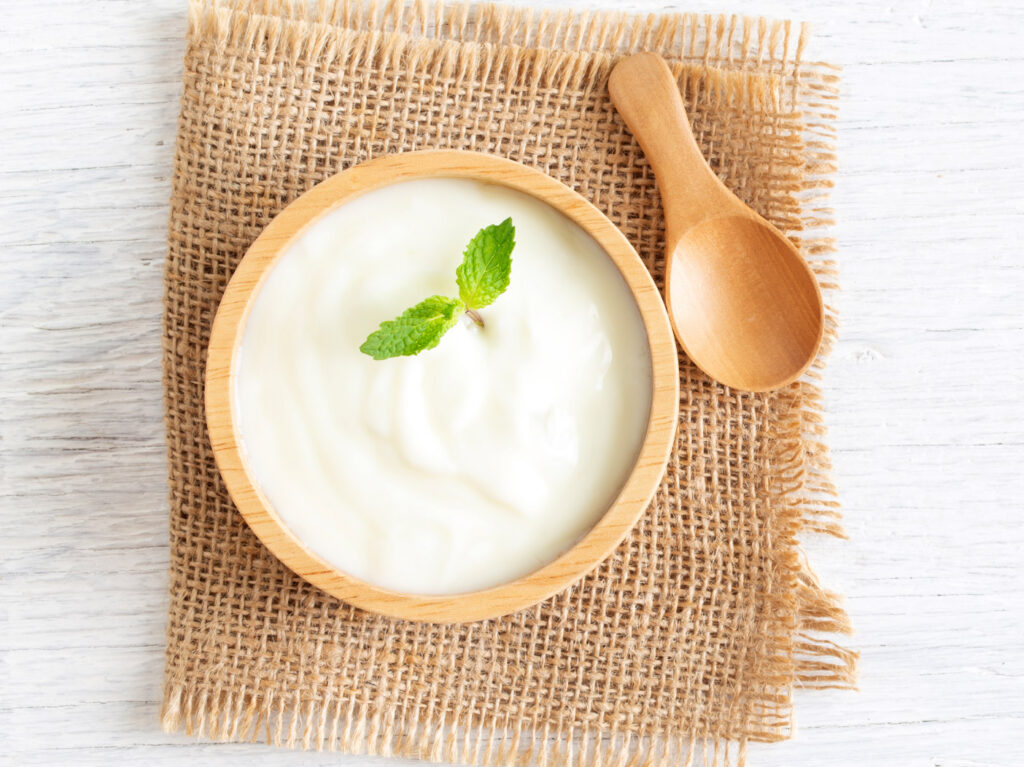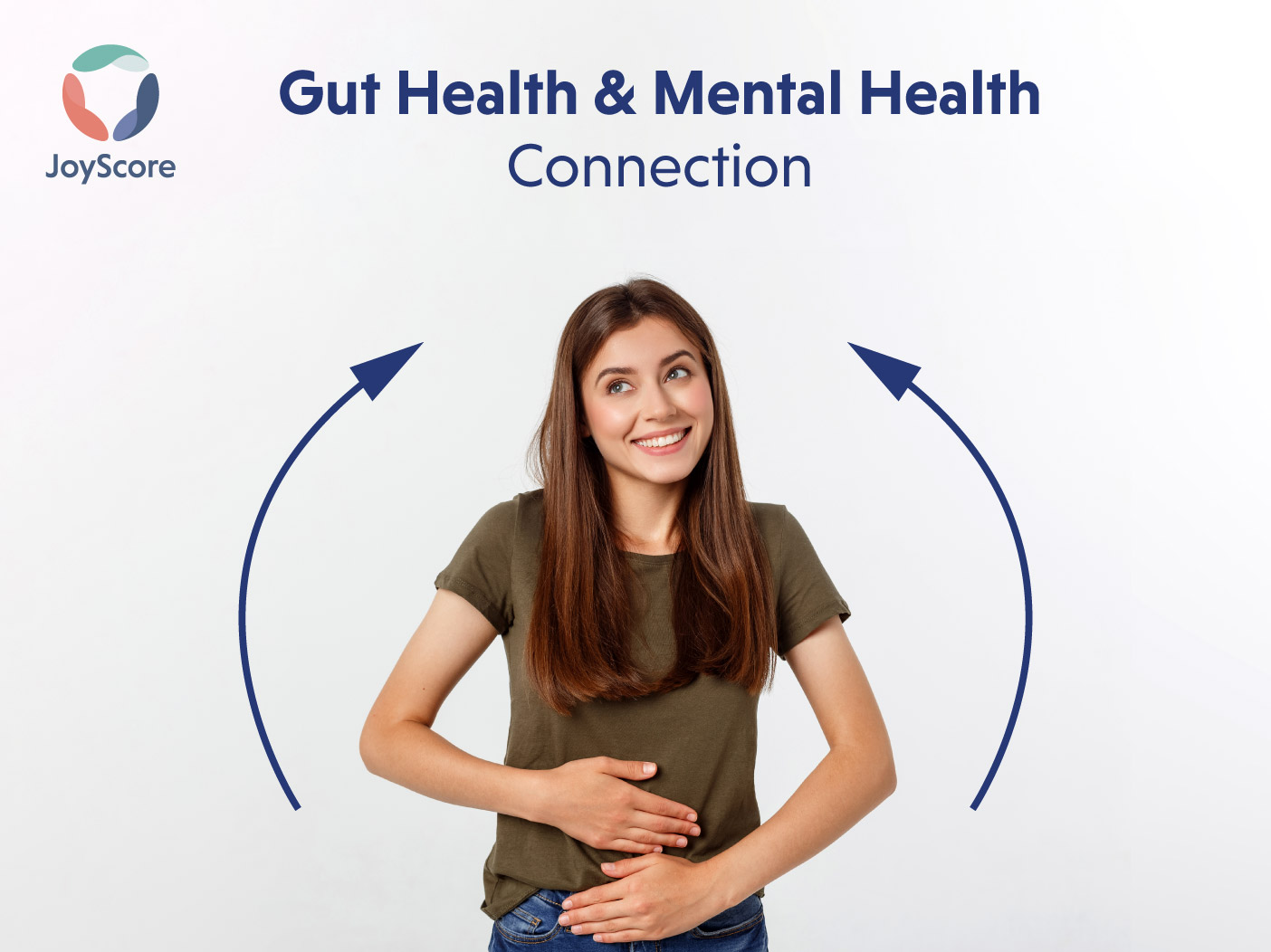Gut Health And Mental Health Connection
You may be surprised to know that our gut health affects our mental health and vice versa. Understanding this connection helps us to answer many of our queries related to our health. For instance, when we feel nauseous at times with no obvious physical cause, it may result from unpleasant emotions. Similarly, you may also have experienced the release of stomach juices at the thought of eating. Therefore, treating some gastrointestinal (GI) disorders is impossible without considering the role of stress and emotions.
It is also important to know that some people perceive pain more acutely than others, as their brains are more responsive to pain signals from the GI tract. Hence, this is another reference to explain the two-sided gateway between our gut and brain maintained by the vagus nerve. The vagus nerve plays a vital role in conveying messages from our brain to the gut and other vital organs. This nerve also has an impact on our parasympathetic nervous system, which manages the ‘rest and digest response. Therefore, stimulation of the nerve increases the vagus tone, and the body can relax faster after stress. Treatment of people suffering from post-traumatic stress disorder (PTSD) or depression is also accelerated by this mechanism.
However, this doesn’t mean that all the functional gastrointestinal conditions are imaginary or “all in your head.” Psychology combines with physical factors to cause bowel symptoms. Thus, this makes us understand that some GI conditions improve with psychological therapy along with medical intervention.
GUT HEALTH AFFECTS MENTAL HEALTH
One needs to understand the significance of gut health and mental health connection to manage unpleasant emotions and stress. The gut is referred to as the “second brain,” as many emotions like sadness, anger, nervousness, fear, and joy are felt more in our gut. 95% of the body’s supply of serotonin or happy hormone also resides in our gut and influences our mood and GI activity.
- There is a term ‘feeling sick to the stomach,’ and it describes a situation that involves mental or emotional anguish that produces stress in the brain and body. Another feeling is excitement in the gut, which is described as ‘butterflies’ in our stomach. Therefore, it is evident that problems in our gut cause imbalances in the mind.
- Another important function of the gut is to help in internal body sensing and intuition. There is a wise saying that goes, ‘trust your gut.’ This means we should use our gut to guide us or avert danger. The gut acts like an internal compass to support intuition decision-making.
- A healthy gut helps improve energy levels, boost motivation, and clarify thoughts.
- Gut bacteria produce hundreds of neurochemicals that the brain uses to regulate mental processes such as learning, memory, and mood.
MENTAL HEALTH AFFECTS GUT HEALTH
Many people have often experienced anxiety and stress resulting in the arousal of gut issues like feeling sick, having a sensitive stomach, constipation, and diarrhea. Some chronic conditions like irritable bowel syndrome (IBS), Crohn’s disease, and ulcerative colitis may also persist in the long run. These gut problems result when psychological stress suppresses the number of beneficial gut bacteria.
Mental disorders also instigate overeating unhealthy foods with high amounts of natural and artificial sugar, disturbing the delicate balance of our gut microbiota (collection of good gut microbes). An altered gut microbiome, therefore, leads to a number of GI disorders.
- A reduced number of neurons in the gut further leads to the deterioration of the gut’s lining.
- Poor digestion of food
- Decreased absorption of nutrients
- Slowed movement of contents through the GI tract
- Reduced immunity
The resulting gut disorders are again the source of anxiety and depression as they affect our eating and drinking habits. Hence, this is a vicious circle. However, more severe conditions can be differentiated from stress-resulting symptoms by being mindful of some warning signs. Some signs are weight loss, blood in the stool, black tarry stools, or abnormal lab values.
MANAGEMENT OF GUT HEALTH AND MENTAL HEALTH CONNECTION
- Include fermented food or probiotics in your diet

Yogurt, kefir, sauerkraut, kimchi, miso and kombucha are some of the most common fermented foods. Your morning smoothies can also be nourished by adding probiotics like fermented cod liver oil, green foods, and protein powders. These types of foods contain a wide range of bacteria to compensate for the loss of gut bacteria due to some physical disorder or mental distress. Taking good probiotic supplements is also advisable for those whose nutritional requirements are not improved with natural foods.
- Include prebiotic fiber in every meal

Prebiotic foods serve as food to the gut and good bacteria. Hence, they help in the promotion of these beneficial bacteria. Prebiotics are found in many fruits and vegetables like onions, garlic, bananas, asparagus, chicory roots, barley, oats, cocoa, flaxseeds, wheat bran, etc.
- Relax to digest your food
The gastric juices important for absorbing vitamins, minerals, and other nutrients are produced adequately only when we relax after a meal. Therefore, people suffering from anxiety and depression experience functional bowel problems like constipation, diarrhea, bloating, pain, stomach upset, etc.
- Avoid processed and high sugary diets.
Processed foods contain sugar and starch, hydrogenated fats, and flavor enhancers that prove unhealthy to your gut. Some common examples of such food are canned foods, sugar-coated dried fruits, salted meat products, buns, pastries, etc.
High-sugar foods are linked to higher levels of inflammation which can irritate the gut, damage the protective mucus layer and decrease the amount of good bacteria.
- Exercise regularly
Scheduling exercise time in your daily routine can encourage individuals to work out regularly. If working out is not possible, strive to take time to walk around your neighbourhood after every meal. This exercise schedule will help you improve your gut and mental health connections.
- Drink plenty of water
The digestive process can be improved when we aim to consume between six to eight glasses of water a day. In cases of diarrhea and dehydration, drinking plenty of water replenishes the loss of body fluids.
- Yoga and meditation

Yoga is a form of low-impact exercise that is very effective in lowering the stress hormones in our bodies. It also encourages the release of feel-good hormones or endorphins, thus decreasing anxiety and improving mood.
Similarly, meditation is also an effective tool for improving gut health and mental health connection. It gives you a sense of calm, peace, and balance and benefits your emotional and physical well-being.
- Seek help
A therapist having expertise in managing chronic anxiety can be consulted in some serious cases.
CONCLUSION
The gut health and mental health connection is a two-way process and is responsible for our overall health. Therefore, we must make efforts to maintain a healthy gut and mind and see if they are collaborating with each other.
Download the JOYSCORE APP and lead a long, healthy, and joyful life.
Download on the Appstore
Get it on Google Play



